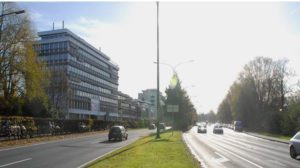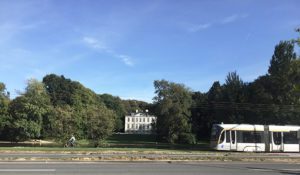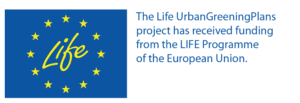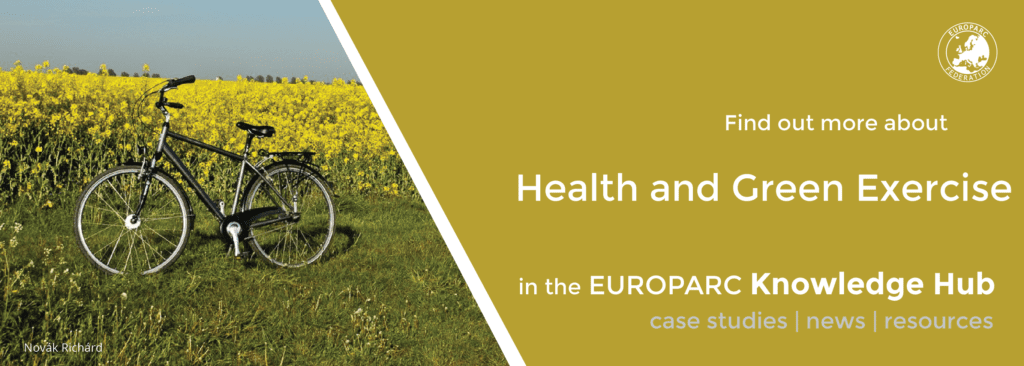Introducing Prof. Noelle Aarts!
The EUROPARC Conference in Austria will take participants through the wide world of communications. Our expert keynote speakers will be our guides. Today, get to know Prof. Noelle Aarts.
Noelle Aarts is a professor of Socio-Ecological Interactions and director of the Institute for Science in Society (ISiS) at the Radboud University in Nijmegen. Her research focuses on interactional processes for creating space for change towards socio-ecological transformations, developing insights into the interplay between everyday conversations and wider structures and developments in society. In other words:
If you want to change how people think, start by changing the way they talk (Bate, 2004: 37).
This is one of Noelle’s favourite quotes. Understandable: as a professor of socio-ecological interactions, she studies communication in multi-stakeholder processes on complex societal challenges such as climate change, biodiversity loss and human-animal relationships in the context of crossing boundaries. With her research she tries to contribute to a sustainable and healthy society.
During her Keynote Address “The Art of Dialogue – Understanding conversations for Sustainable Change”, Noelle will speak about multi-stakeholder collaboration processes. In these situations, multiple conversations are taking place at the same time, however, they are not always effective! Instead of building fruitful relations, these conversations often result in an even bigger distance between opponents. In her presentation, she will explain why these conversations are so difficult and how we can improve these processes.
Noelle will join us through a livestream for an interactive address. Want to get a taste of what’s in store? Check out this video:
Early bird prices are still running until the 14th of April, so register now!
Transforming a metropolitan road to improve biodiversity
The Woluwe Boulevard after implementing NBS
The LIFE Urban Greening Plans project works on brining nature back to cities. At the end of 2021 project partners met up in Brussels to exchange and while there, also had a change to visit the renatured Woluwe Boulevard.
The Woluwe boulevard is located inside Brussels. On one side it is bordered by large facilities (schools, cultural centre and stores) and on the other side by the Woluwe River. This area includes a series of parks, some of which are classified as Natura 2000 and managed by project leader Brussels Environment or by the municipality.
The boulevard is a typical 1970s urban motorway: over-dimensioned and heavily trafficked, with vulnerability to flooding, noise, visual and air pollution. Cyclists pass along the river which puts additional pressure on this natural area that already has a bad biological state. The boulevard was no longer fit for a modern city.

Woluwe Boulevard – before
When it was decided that a new tramline should be build on the boulevard, the designers decided to connect the project to the ongoing restoration of the Woluwe river banks. It was the perfect opportunity to transform the motorway into a parkway. This would reinforce the existing ecological and landscape continuity, manage vulnerability to flooding and transform the road from an infrastructure that was mainly oriented at cars. The end result would be a multi-use public space with a better balance between the different users – including non-human.
Main innovation and source of inspiration for this project:
- Transformation of a motorway into an parkway;
- Implementation of a tram with grassed lanes, bicycle paths and a promenade;
- Reinforcement of a metropolitan green and blue infrastructure by setting up an integrated rainwater management system, the development of an extensively managed tree and planted mall, the integration of a landscaped edge along the N2000 Parks that border the river.

Woluwe Boulevard – after
This project is one of the first time Brussels integrated Nature-based Solutions (NBS) when redeveloping a major roadway. It especially focussed on « water management solutions », something that will become more and more important for cities as the effects of climate change become more apparent. Whilst there is still room to be more ambitious, the project has already contributed to a new culture of nature-oriented public works projects. This new way of project management is more aware of the added value of applying NBS for upscaling a project.
You can read more about this case study here, or have a look at the report of the LIFE Urban Greening Plans technical meeting.

Support and Housing Possibilities for Ukrainian Colleagues
Photo by Tina Hartung on Unsplash
One month on from the beginning of the war, the difficult situation in Ukraine continues.
Protected Areas in the Carpathians are mobilising to deal with the challenges associated with more and more internally displaced people arriving in the region.
The Frankfurt Zoological Society (FZS) is providing support and relief supplies that are continuously urgently needed. With the help from Slovak, Romanian and Ukrainian partners, as well as Saxon Switzerland National Park—serving as a logistic hub for delivering necessary resources—they are making sure the goods are reaching those in need.
Romanian partners delivered over 10 tons of supplies that have been distributed to 13 Protected Areas in the Carpathians
Once again, we remind you that you can support and help refugee people in the Protected Areas of Ukraine by using the following designated donation account of the FZS:
Emergency support for Protected Areas in the Carpathians:
IBAN: DE63 5005 0201 0000 0800 02
BIC: HELADEF 1822
More information on the FZS’s initiative and support channel in English, German, Spanish, Italian, and French can be found here.
Frankfurt Zoological Society’s donation page is available here.
Housing Possibilities for Ukrainian Colleagues
You can also help by offering a place to stay for Protected Area staff members and their families fleeing Ukraine. To do so, please fill out the form with details about the type of accommodation you offer, the number of people you can accommodate and your location.
Your support is making a significant difference and is greatly appreciated!
EUROPARC will do our best, working with others like the FZS to keep communication channels open and be ready to respond and support the people and nature of Ukraine, both now and in the future.
Sustainable Mental Health Initiatives in Protected Areas – Anna Jennings
Example of simple evaluation technique © Anna Jennings
Every year, the Alfred Toepfer Natural Heritage Scholarship supports the work of young conservationists in Protected Areas across Europe. Anna Jennings, an engagement ranger at the Peak District National Park, was one of the winners of the Scholarship in 2020 and travelled across Scotland and England to learn more about outdoor mental health initiatives. The following article is written by Anna. The current call for scholarships is also opened.
Outdoor Mental Health projects are a relatively recent area of focus for Protected Area Organisations. Traditionally, projects have been relatively short term and reliant on small pots of grant funding and complicated evaluation techniques. This report highlights some ways in which current projects in the UK are taking a more sustainable approach by exploring the following objectives:
- To further explore the principles set out by the EUROPARC Federation in its “Healthy Parks Healthy People Toolkit: Health and Well-being benefits from Parks and Protected Areas”, by providing practical tips for projects, in order to work towards a consistent and connected approach to mental health across Europe’s protected places, which can be shared with EUROPARC members in this report.
- To gain insight into the best practice techniques to get the most positive and sustainable outcomes for people’s mental health.
- To explore less paperwork intensive and clinical evaluation methods.
Although sustainability is as ever illusive and difficult to define, there is certainly a move towards initiatives which offer longer term impacts and opportunities for progression. In the UK, the integration of Green Social Prescribing into the National Health Service offers a promising future for Mental Health projects in Protected Areas. This report further builds on the afforementioned EUROPARC HPHPe Toolkit for Health and Wellbeing benefits from Protected Areas, by setting out recommendations for the successful planning, setting up and running of outdoor Mental Health Projects to ensure the best outcomes for participants and facilitators, particularly in the UK context. The report outlines the case studies of Wild Ways Well, The Wilderness Foundation and Wild at Heart to provide examples of and suggestions for ways to implement the principles set out in the toolkit: Making the Case, Building Partnerships, Developing Capacity and Practice and Connecting People and Nature, and the ways in which these finding have changed the working practices at the Peak District National Park.
Have a look at this video that summarises the report:
Highlights of the report
The main outcomes of study visits:
- Ways to establish lasting partnerships with local Health Organisations.
- Most effective activities and length of projects for mental health initiatives.
- How to ensure long lasting outcomes for participants, which are integrated into their daily lives.
Main learnings for the Peak District National Park:
- How regular Wellbeing sessions were established.
- How lasting partnerships with local Health charities and social prescribers were established.
- The importance of supporting staff’s wellbeing when delivering mental health initiatives.
Ideas that can support the EUROPARC network:
- ‘Know your worth’ – Protected Areas should establish themselves as leading providers of mental wellbeing nature connection, especially peri-urban parks, as they are uniquely situated to reach populations with high quality greenspaces on their doorstep.
- Training recommendations and ways to properly support staff delivering mental health projects.
We’ve interviewed all 2020 winners of the Alfred Toepfer Scholarship in a EUROPARC Podcast, you can listen to it here:


